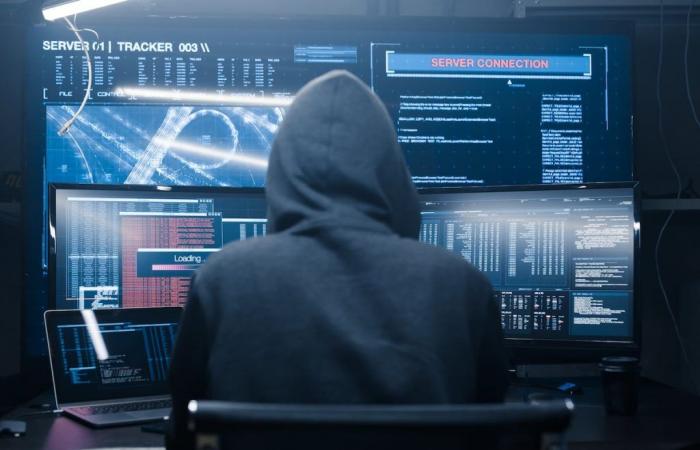
The wave of cyber attacks suffered in recent weeks by large companies such as Ticketmaster, Banco Santander, Iberdrola and the DGT has once again brought the importance of cybersecurity to the forefront of information. According to the latest available data, corresponding to 2022, the National Cybersecurity Institute (INCIBE) managed more than 118,000 cybersecurity incidents during that period, 9% more than a year before. And the latest National Security Report, corresponding to 2023, sets the number of cybercrimes recorded by the National Cryptology Center at 940,776 in just nine months, a figure 21.5% higher than the previous year.
“Socially we are increasingly aware of the importance of cybersecurity, although in many cases people tend to continue to see it as something abstract that limits the actions we would like to carry out online. Until a cybersecurity incident happens and then we do consider it a necessity,” says Xana Martínez, Talent Technician at INCIBE, who considers that cybersecurity is already a “strategic sector”, both from compliance with current legislation in matter and the fact that, other things being equal, it is a “competitive advantage” for those companies capable of guaranteeing cybersecurity and making better use of the information of their clients and users.
This conversion of cybersecurity into a strategic sector has been reflected in the demand for expert professionals in this field, as well as in the development of training and educational programs (first in the form of master’s degrees and postgraduate degrees, and then in degrees) to respond. to that demand.
“Companies in the nineties needed a computer scientist to maintain equipment; Then the need to be connected was imposed and, now, as soon as we grow a little, every company needs a cybersecurity manager. And that is a very specific profile that not only involves protecting against attacks, but also defining cybersecurity policies and strategies,” explains Manuel Enciso, director of the Higher Technical School of Computer Engineering at the University of Malaga, where this course began. the first class of students of the degree in Cybersecurity and Artificial Intelligence. They received 350 applications for 65 places, which made the degree one of the degrees at the Andalusian university with the highest cut-off mark (12.5). The surname AI of the degree, Enciso points out, is explained because it is currently impossible to address cybersecurity without having knowledge of AI: “It is essential to be able to provide your systems with the potential of the AI that attackers are using; and also to study the forensic part, the identification of vulnerabilities and problems,” he adds.
Professional profiles
The Rey Juan Carlos University of Madrid was a pioneer on a national scale with its degree in Cybersecurity Engineering, running since the 2018-2019 academic year. “From the beginning we have seen quite high and growing interest. Being such a specific and booming career, kids usually have a lot of motivation, and are clear about what they want to do and what they expect from the career. They know what they are coming for,” says Antonio González Pardo, coordinator of the degree. They also know that they have chosen a career with a great future. “Cybersecurity is an area with great projection and a large number of professional opportunities. In fact, the study carried out annually by the International Information Systems Security Certification Consortium confirmed in 2022 that cybersecurity is an expanding area and where a large number of professionals are still needed,” says Xana Martínez.
With the experience of two graduating classes, González Pardo attests to that reality. “It catches my attention to see that it takes less than two months for graduate students to find a job as soon as they finish their degree,” he says. And that fact, which is very good, however, also implies a problem: there are so many good job offers that it is difficult to find expert teachers in cybersecurity. “The ideal would be that, just as these students are getting their degree, we could recruit some of them to do a master’s degree and doctoral thesis and for them to join the teaching staff, but when they see what companies charge, they don’t want to.” know nothing about the University,” he argues.
When looking for professional opportunities, cybersecurity is such a broad field that, for Xana Martínez, specialization is essential. In this sense, the European Union Agency for Cybersecurity (ENISA) has recently prepared a document with 12 professional profiles in the field of cybersecurity. Among the most demanded, that of Chief Information Security Officer (CISO), in charge of managing an organization’s cybersecurity strategy and its implementation; the one of Penetration testerresponsible for evaluating the effectiveness of cybersecurity controls and detecting vulnerabilities, or the Cybersecurity Auditor.
Dedication with almost no time limit
Men predominate in Cybersecurity degrees. At the University of Malaga there are only nine girls among the 65 students. At the Rey Juan Carlos University, women began representing 11% of the students in the 2018-2019 academic year. In the last promotion they are already 25.5%. “The percentage has not stopped growing and we believe that it will not stop doing so,” says Antonio González Pardo, who points out that the profile of the student of this degree is that of a “curious person, who really likes to tinker, to think about things. to things, look for where the problems are.” His opinion is shared by Xana Martínez, from INCIBE, who adds that those who end up dedicating themselves to cybersecurity are people “passionate about new technologies who do not expect to find the solutions in a manual.” For all of them, some advice: working in cybersecurity means dedicating many hours, so it is essential that you are passionate about the work. “In most cases, someone who is not very good technically but motivated is better than the other way around, since the motivated person will be more proactive and resilient when it comes to solving the challenges or problems they encounter,” she concludes. .





